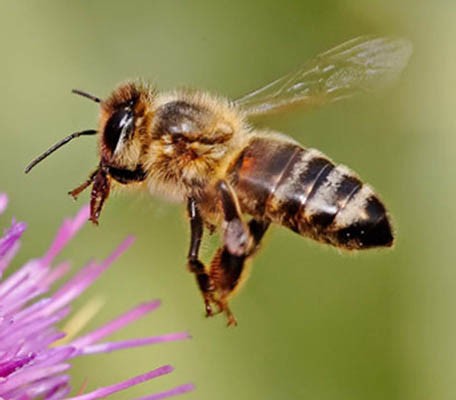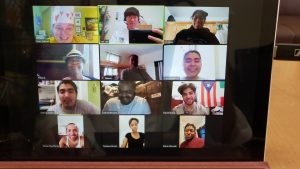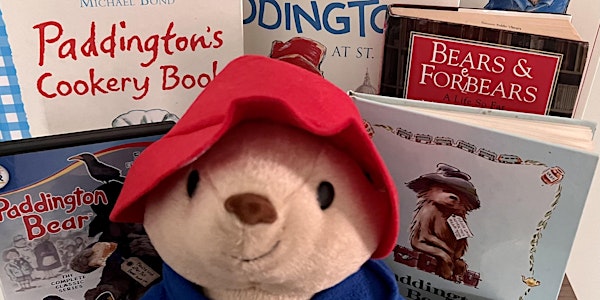FUTURE TEACHING GOALS
The pandemic illustrated that teachers need to increase our capacity to teach on-line effectively. I have been working on discovering creative ways to keep students engaged. I am seeing that I need to find ways to increase students commitment to following directions and staying organized, whether in person or online.
Three of my long-term goals include:
1. Increasing the students’ commitment to critical thinking
I am in constant pursuit of getting students to become culturally informed; in a position to assess current events and make informed decisions, either business- related or personal. My first line of attack is getting pupils to see the IMPORTANCE of acquiring information from reliable and varied sources. A great majority of my students, when asked, will say their career goal is to be a general manager of a hotel in New York City. I want them to see that someone who has this position is a very powerful person, a well-informed person; someone who knows what is occurring in the world ; someone who is informed about local union strife, business takeovers, mergers, lawsuits, food trends, names of politicians, and more. I ask students to imagine being at the head of the table at a management meeting, imagine an underling asking them “how do you feel about the labor strike in Las Vegas casino?” Will they know about this, or are they the one person in the room who is not up on current events?
I ask students to imagine they are the executive chef of a restaurant who is catering a large wedding that weekend. The mother of the bride calls frantic to speak with them. There is a melon prosciutto course on the menu, and the client wants to know their response to the salmonella outbreak related to cantaloupe grown in Ohio. I implore students to know, for example, that the client wants to hear that they have already contacted their suppliers and made sure deliveries are not from Ohio. Professional chefs must be aware of what clients are talking about! And wouldn’t it be great to be a superstar chef who actually calls the client first, saying they just wanted their customer to know they were safe in their hands, and that their company is aware of the salmonella outbreak and has made all steps to ensure their safety? “Go the extra mile,” I encourage them … that is the City Tech-trained way!
So, I have a goal to increase the students’ desire to consume legitimate news and to see how being informed directly impacts their careers.
2. Staying on top of the technology that the students use is another goal of mine. I need to work to understand how the average student approaches their school work. This includes understanding the model I grew up with is not theirs’. Students often prefer a screen to paper, and have earplugs installed much of the day. Pupils spend large amounts of time on social media. Given this, my goal is to funnel this “screen time” into learning activities that benefit students. I am always searching for new ideas. In fall 2014 I first assigned a sociaal-media based assignment, and it was very successful. The entire class of 25 did the assignment, and we had a lively discussion. I continue this now in 2023. I am always casting around for more ideas like this. I often link news reports and YouTube videos to class Open Lab sites, and encourage students to download various items before they leave home, knowing many have a long commute. Students are grateful when they do not have to “print” at home and I am always searching for ways to see evidence of learning come to life in class discussion or even similar items to what I have posted.
Given my commitment to having students engage online, I feel a responsibility to ensuring that online activity is safe. I constructed a Netiquette presentation I show to first-year students, and my Introduction to Food and Beverage Management class has a specific assignment meant to help students identify the intent of the sponsor of the site they are visiting. Students are asked to identify whether the site exists to educate or to sell. Click this link to see my Netiquette presentation used early in the semester before students are asked to do on-line research. Wk 2 Netiquette & Writing Prompt fall 21Download
3. Work to Decolonize the Kitchen
That the American culinary arts education system is rooted in colonization is a pressing and disturbing issue. Unraveling this should be a priority. The community and the college and the department has much work to do. I am constantly working to ensure that I am using inclusive practices in my classes and in my writing, but a larger and systematic approach is needed. And I am learning every day. Changing textbooks, switching to the latest OER sources, and updating menus and recipes is ongoing.
TEACHING IMPROVEMENT ACTIVITIES
ChatGPT, and Artificial Intelligence in general, offer a new set of challenges. Addressing new and unprecedented ways of learning (and completing tasks) ties in with my work on the Academic Integrity, Assessment, Gen Ed, and Grade Appeal committees. Educators in particular are at a crossroads; needing to understand AI and somehow come to a method of either defending against, or incorporating new technologies into their classrooms. I have been eager for the sources that CUNY has offered, attending in February 2023, a ChatGPT information session sponsored by the CUNY Innovative Teaching Academy. I then attended a program sponsored by Faculty Commons in April 2023 in which City Tech professors discussed AI and offered insight specific to educators. The CUNY “Teaching Matters” team offered a “sold-out” presentation and posted the video on their site, This was helpful and informative. I have also made use of City Tech’s Library’s resources, which I have found useful, https://libguides.citytech.cuny.edu/c.php?g=1308008
In spring 2022 I worked to attain my Writing Intensive Certification. I was asked to discuss what I learned, which was considerable. This is my short “show and tell” presentation How WAC and Writing Intensive Certification has helped How WAC and Writing Intensive Certification has helped
In February 2022 I attended a two-part workshop “Anti-Racist Pedagogy: Adapting Our Teaching.” This important topic is particularly relevant to the teaching canon of culinary arts, which are rooted in colonialism. I have been attending as many programs as possible in order to become educated and informed as to how to adapt my teaching. Subjects have ranged from the Culinary Historians of New York-sponsored “Paddington and the Marmalade Sandwich” (which discussed a bear “from darkest Peru” and the troubled history of sugar production and its ties to enslavement).
I attended a seminar hosted by the School of Advanced Study University of London on the topic of “Culinary Colonialism in Canada,” which offered an emphasis on indigenous foodways. The Graduate Association for Food Studies hosted the “Food Studies Dilemma: Searching for the Food Studies Canon.” This program addressed exactly what I have been struggling with; how can we teach only “classical” cuisine techniques? This is a loaded and explosive topic considering that is exactly what my department does. “Classical cuisine was what my own culinary education was rooted in, and is the backbone of the textbooks our program uses. When teaching International Cuisine, I made strides in moving the course away from this, but I wonder if this is the equivalent of how people say the “ethnic” aisle in the grocery store is racist. Once something is set apart, it is not the standard.
I attended The Dyckman Farmhouse Museum Alliance’s “Talking about Race Matters” and was gratified to hear the speaker was Lavada Nahon, who had been a guest speaker at Durand-Hedden years before.





